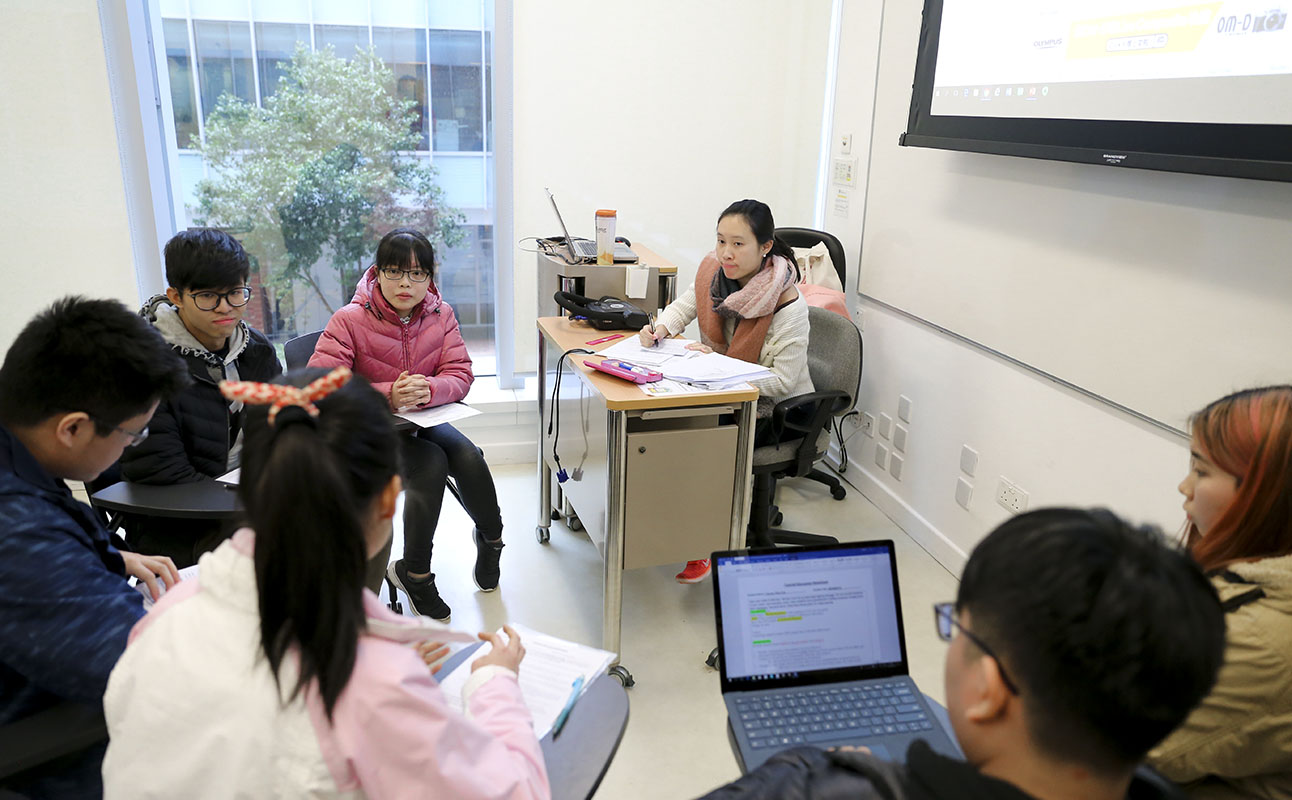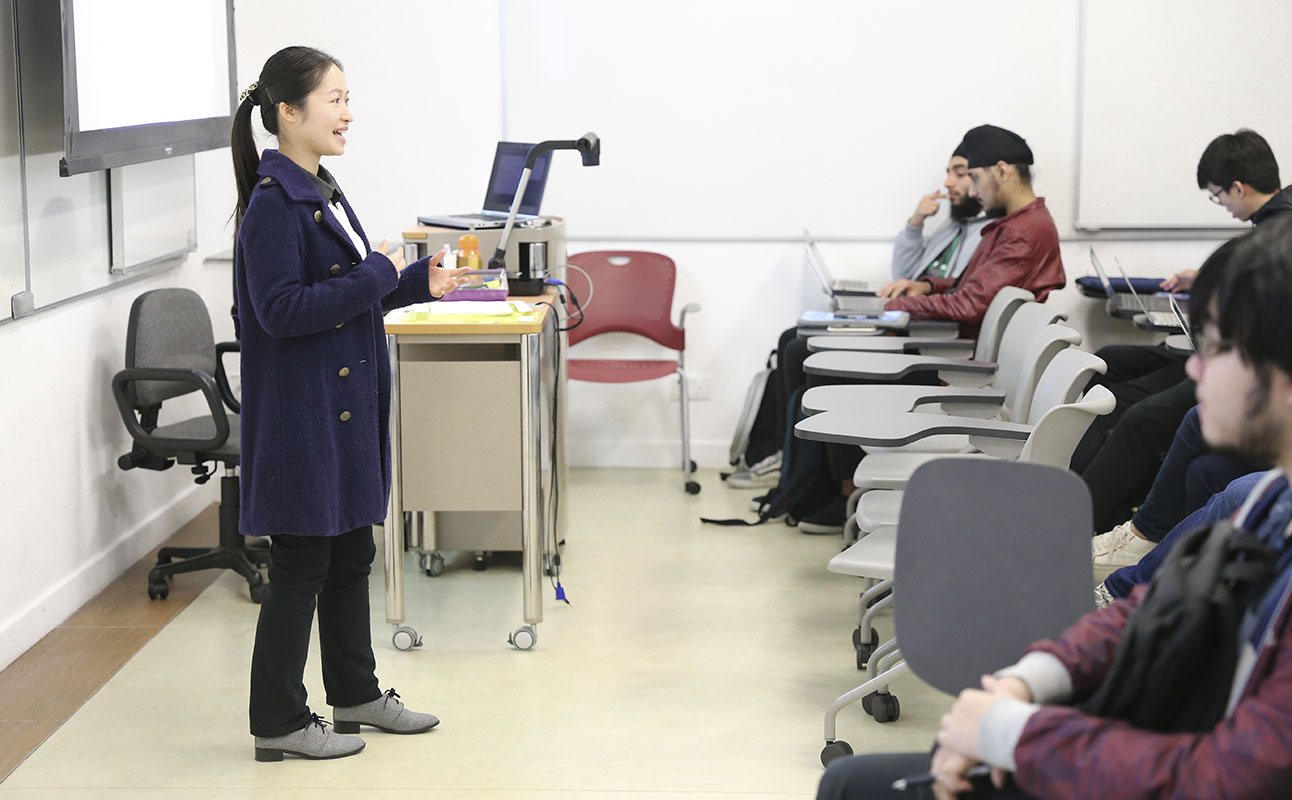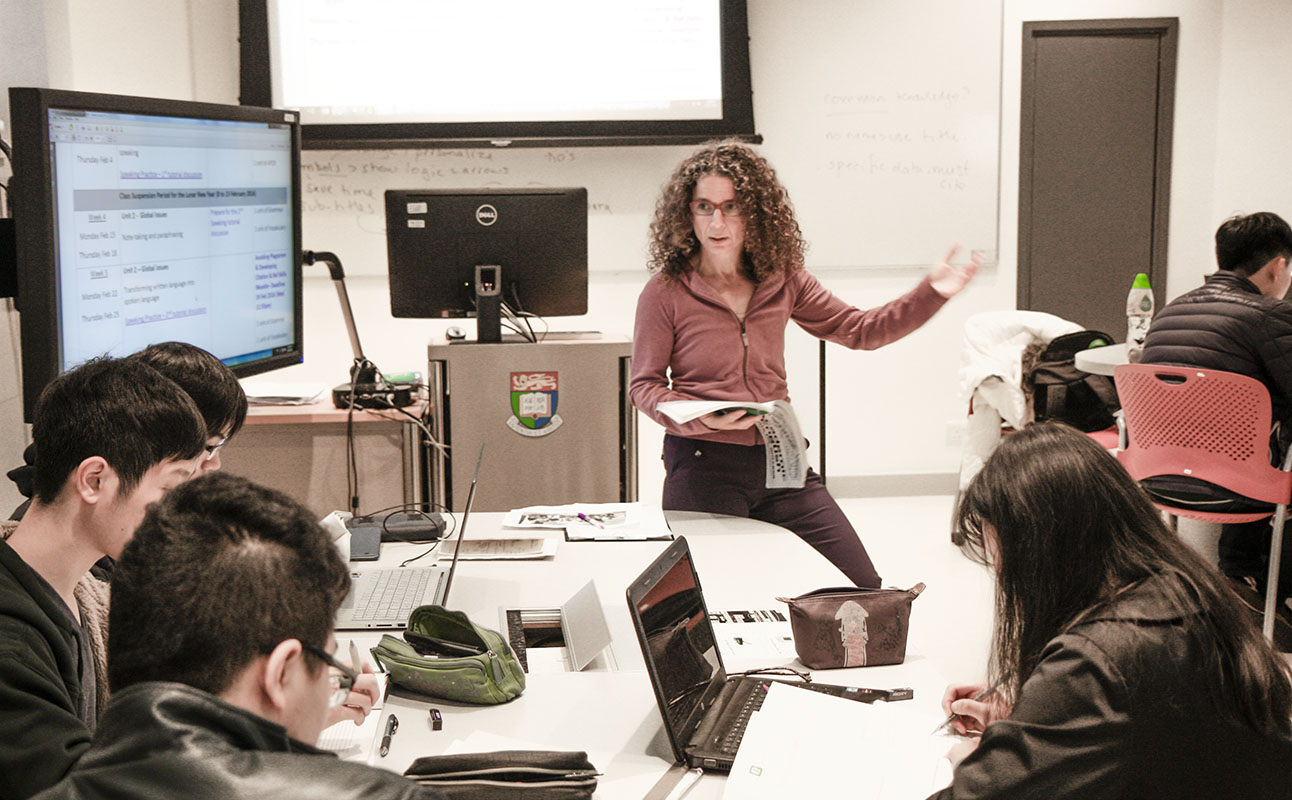1. Attendance
CAES expects students to attend 100% of scheduled classes (including the add/drop period) and complete all assigned out-of-class tasks (if applicable). 20% absence is allowed for emergencies or sick leave. Students who are not able to meet the 80% attendance requirement due to various reasons should contact their teacher immediately. Students may risk failing the course if they miss a substantial proportion of the course without providing any medical certificate or legitimate reason for their absence.
Students have the responsibility to contact their teacher before the commencement of the course if they know in advance they have problems meeting the 80% attendance requirement. Examples of such cases include students who are pending faculty’s approval for their application for leave of absence.
If students know in advance that they have problems with attending the scheduled classes then they should also contact their teacher immediately and provide an explanation. It is very important for the teacher concerned to be informed about this ahead of time so that they can make appropriate arrangements for these students.
CAES classes are highly interactive. We would like our students to get the most out of our courses by actively participating in lessons via responding to their teacher and classmates. If for any reason participation in interactive activities is not possible in some of our courses with a virtual learning element (e.g. due to internet connection problem), students should let their teacher know in advance.
If students have any special needs or circumstances that may affect their attendance or ability to complete course assignments on time, they are strongly encouraged to seek professional advice from HKU-CEDARS (https://www.cedars.hku.hk/).
2. Punctuality
We expect students to be punctual for all the scheduled classes and tutorials of CAES. Students may be marked as partially absent if they are late for 10 minutes or more for a class without a valid reason. Lateness for two times may count as one absence.

3. Academic Honesty
HKU expects all students to display a high level of integrity when completing course assignments. Any form of academic dishonesty will not be tolerated, and failure to observe the rules and conduct of academic integrity will result in negative consequences. As such, you should complete your course assessments honestly at all times. Examples of basic principles of academic honesty include: (i) completing the entire assessments yourself; (ii) NOT submitting the same assessment more than once unless specified otherwise by the course teachers concerned, and (iii) not colluding (i.e. cooperating with others secretly with an intention to deceive) with anyone when producing your work.
We would like to draw your attention to sections 3.1 and 3.2 for details of two common forms of academic misconduct which result in severe consequences.
3.1 Plagiarism and self-plagiarism
Plagiarism is defined as “the use of another person’s work (including but not limited to any materials, creations, ideas and data) as if one’s own without due acknowledgement, whether or not such work has been published and regardless of the intent to deceive” in the Policy on Student Plagiarism in Undergraduate and Taught Postgraduate Curricular (116/1080). Some common types of plagiarism include:
- paraphrasing and/or quoting without acknowledgement;
- inappropriate paraphrasing and/or quotation of sourced content
This is not an exhaustive list but it gives you an idea of some common types of plagiarism cases in students’ work.
Self-plagiarism is defined as “the reuse of one’s own work without acknowledging that such work has been submitted elsewhere” in the Policy on Student Plagiarism in Undergraduate and Taught Postgraduate Curricula (116/1080). Students should not submit the same piece of work for different courses (except for adjunct English-in-the-Discipline courses and with teachers’ permission). They should always check with the teacher if they are unsure.
Examples of plagiarism:
You are strongly advised to visit the following links about the University’s Policy on Plagiarism:
https://tl.hku.hk/plagiarism/how-to-avoid-plagiarism/
Learning resources to help you avoid plagiarism:
https://tl.hku.hk/plagiarism/learning-resources/
Consequences of Plagiarism
In the University of Hong Kong, plagiarism is a disciplinary offence. If a submission contains plagiarism, only the unplagiarised parts will be marked. This may result in the work being considered as incomplete, unstructured, lacking content and organization.
The link below contains information about consequences and disciplinary procedures concerning students who have committed plagiarism:
https://tl.hku.hk/plagiarism/consequences-of-plagiarism/
3.2 Ghostwriting and its consequences
Ghostwriting, also known as ‘contract cheating’, is when a student gets someone (paid or unpaid) to complete part of OR all of an assignment. It is serious academic misconduct. CAES takes ghostwriting very seriously and when such cases are confirmed, severe penalty will apply. The assignment concerned will be treated as a non-submission (i.e. 0 mark). Such cases will also be reported to students’ Home Faculty for disciplinary action. If such cases are further reported to the University Disciplinary Committee, the student who is found guilty is subject to various forms of punishment, details of which can be found in section 4 of Statute XXXI of the University’s Statutes and the Disciplinary Committee Regulation: https://calendar.hku.hk/disciplinary-committee-regulations/
4. The use of generative artificial intelligence in CAES assignments
Generative artificial intelligence (GenAI) is technology that generates text, images, or other types of content in response to prompts given by the user. If used appropriately, it can help students to develop their thinking, language, and communication skills, and may enhance the quality of their work. Using GenAI inappropriately can result in learning loss, generic assignments, inaccurate and biased content, reduced self-efficacy, academic misconduct, and disciplinary action.
- Appropriate use involves employing GenAI to support learning while actively and critically engaging with assignment tasks, taking full control and ownership.
- Inappropriate use occurs when GenAI is relied upon to perform tasks that should be done personally, and when it is used in ways that compromise academic integrity.
Examples of appropriate and inappropriate use of GenAI use for CAES assignments:
| Appropriate use | – exploring ideas and perspectives related to the assignment topic
– assisting in understanding texts and technical vocabulary – advising on genre conventions and common structures for the assignment type – providing feedback on your ideas, language, and writing
|
| Inappropriate use | – generating fake references
– using GenAI output as academic or professional knowledge – citing GenAI output (it does not create knowledge) – generating part or all of your assignment, including paraphrases, sentences and paragraphs – copying and pasting CAES learning materials and assessment guidelines into GenAI applications
|
Your assignments should reflect your learning, genuine voice, and stance. Always critically reflect on GenAI assistance and make sure that you are confident that the language use and arguments you make in your assignment are your own and appropriate for an academic or professional text.
You should read the course information carefully and speak with your teacher before assignment deadlines if you are unsure about the appropriate use of GenAI.

If students are sick and unable to hand in an assignment, they must contact their teacher to let them know immediately. The following are general guidelines on penalties/policies for late submission of assignments for all CAES courses.
- Assignments which are handed in up to four days late without any medical/legitimate reason will have one full letter grade deducted each day (e.g. a B- becomes a C- after one day late).
- If the assignment is submitted four days after the deadline without a medical certificate/a legitimate reason, it will be treated as non-submission (N – 0 mark). It is up to the programme coordinator to decide whether such students should be given feedback on this assignment.
Students who do not submit an assignment at all or miss an assessment without a medical certificate should be given an N (0 mark).

6. Bad Weather
In the case of bad weather such as Black / Red Rain or Typhoon Signal 8, please follow the university guidelines (updated 2021 by The Registry):
(a) Tropical Cyclone Warning Signal No. 8 (or above) is hoisted; or (b) Tropical Cyclone Warning Signal No. 8 will be issued within two hours as announced by the Hong Kong Observatory; or (c) “Extreme conditions” after super typhoons are in force (announced by the Government before the Hong Kong Observatory replaces Tropical Cyclone Warning Signal No. 8 with Tropical Cyclone Warning Signal No. 3); or (d) Black Rainstorm Signal is in force, the following arrangements will apply:
For classes and examinations not yet started:
| If any of the warnings or announcements is hoisted or in force at or after 6:00 am | All classes and examinations commencing before 2:00 pm will be cancelled automatically. |
| If any of the warnings or announcements is hoisted or in force at or after 11:00 am | All classes and examinations commencing at any time from 2:00 pm and before 6:00 pm will be cancelled automatically. |
| If any of the warnings or announcements is hoisted or in force at or after 3:00 pm | All classes and examinations commencing from 6:00 pm onward will be cancelled automatically |
For classes and examinations already started:
| When Tropical Cyclone Warning Signal No. 8 or above is hoisted or the No. 8 Signal will be issued within two hours as announced by the Hong Kong Observatory, or “extreme conditions” are in force | – All classes and outdoor examinations will be suspended immediately. – All examinations, except those held outdoors, will continue until the end of that examination session.
– All examinations, except those held outdoors, will continue until the end of that examination session. |
| When Black Rainstorm Signal is hoisted | All classes and examinations, except those held outdoors, will continue. For outdoor classes and examinations, the responsible staff members on the spot should suspend the activities immediately, ensure that all students are taken to a safe place, and remain there until it is safe for them to return home. |
When Tropical Cyclone Warning Signal No. 3 or below or Red or Amber Rainstorm Signal is in force, it should be assumed that all classes and examinations will be held as scheduled unless an announcement to the contrary has been made by the University.